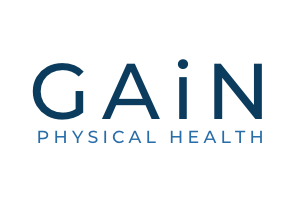 What is Fascia?
What is Fascia?
Fascia is fibrous connective tissue that wraps around and supports every structure in your body. Researchers initially thought fascia only supported your organs, muscles and bones but the definition has now extended to the tissue that surrounds all of the cells throughout your body, including nerves, joints, tendons and ligaments.
When your fascia is healthy it has the right amount of mobility to help you move. When it’s unhealthy, the fascial layers can tighten around your muscles and other tissues. This can lead to pain and limited mobility often mistaken for muscle or joint pain. An example of a common condition caused by unhealthy fascia is ‘Plantar Fasciitis’.
What is Fascial Stretch Therapy (FST™)?
Fascial Stretch Therapy is a unique system of assisted stretching that specifically targets your fascia and joints. Certified therapists use movement through a series of stretches to unlock tension in the deepest layers of your tissues. The aim is to unravel restrictions in the fascia, relax any hold the nervous system has on the tissues and open up the joint space by stretching the fascia throughout the body. FST™ is performed on a traditional massage table using stabilization straps to ensure the patient can relax whilst the therapist performs the stretches. FST™ is a complementary therapy, compatible with other methods of therapy and training, such as massage, physiotherapy, osteopathy, chiropractic, strength and conditioning.
Who can benefit from FST™?
Those with chronic back pain: Chronic back pain can often be associated with muscle tightness, joint stiffness, fear of or certain movements and lack of mobility. FST™ can help reduce your pain and restore function so you can return to your normal activities.
Those who train regularly: When you’re training regularly, you need your body to be able to recover quickly. FST™ improves blood flow to tired muscles, which helps you to recover faster from your tough training sessions with less soreness.
Those who sit too much: Decreased blood flow to your legs can lead to a myriad of health issues. Not to mention stiffness and tightness in the glutes, hamstrings, lower back, and neck. FST™ improves circulation and wakes up all those sitting muscles.
Those with degenerative joint disease or arthritis: Both chronic issues are related to, and cause decreased joint space and lack of movement at the joint. FST™ can help slow the process of degeneration by keeping the affected joints lubricated and moving in a safe, pain free way.
Those with poor postures: Over time our tissues adaptively shorten and weaken as we hold poor postures throughout the day. FST™ helps restore alignment and proprioception in joints while unraveling the tension poor postures can create.
Those recovering from an injury. Feel like your recovery has plateaued? Through FST™, your therapist can help increase your range of motion by eliminating adhesions and allowing your body to get rid of unnecessary compensations.
Those who are stressed: Stuck in fight or flight mode – racing mind, trouble sleeping, constipated? FST™, helps pull you into a more parasympathetic state (rest and digest), which allows our body and mind to relax and let go of excess tension, promoting a deeper, restful sleep.
Those who need help stretching: How far, how long, how often? An FST™ assessment and treatment can give you a good idea of areas to focus on. What corners of your joint are restricted, what your pattern of movement is. There is no better way to learn than FEELING IT!
Those who do not like massage: FST™ is a great way to achieve the relaxation and decreased tension of a massage, without the sometimes uncomfortable action of undressing, etc.

What specifically FST™ can help you with:
- Fitness performance
- Range of motion
- Relaxation
- Stress relief
- Muscle tension
- Injury recovery
To book your treatment with Whitney Hannah, FST™ Practitioner click here.




